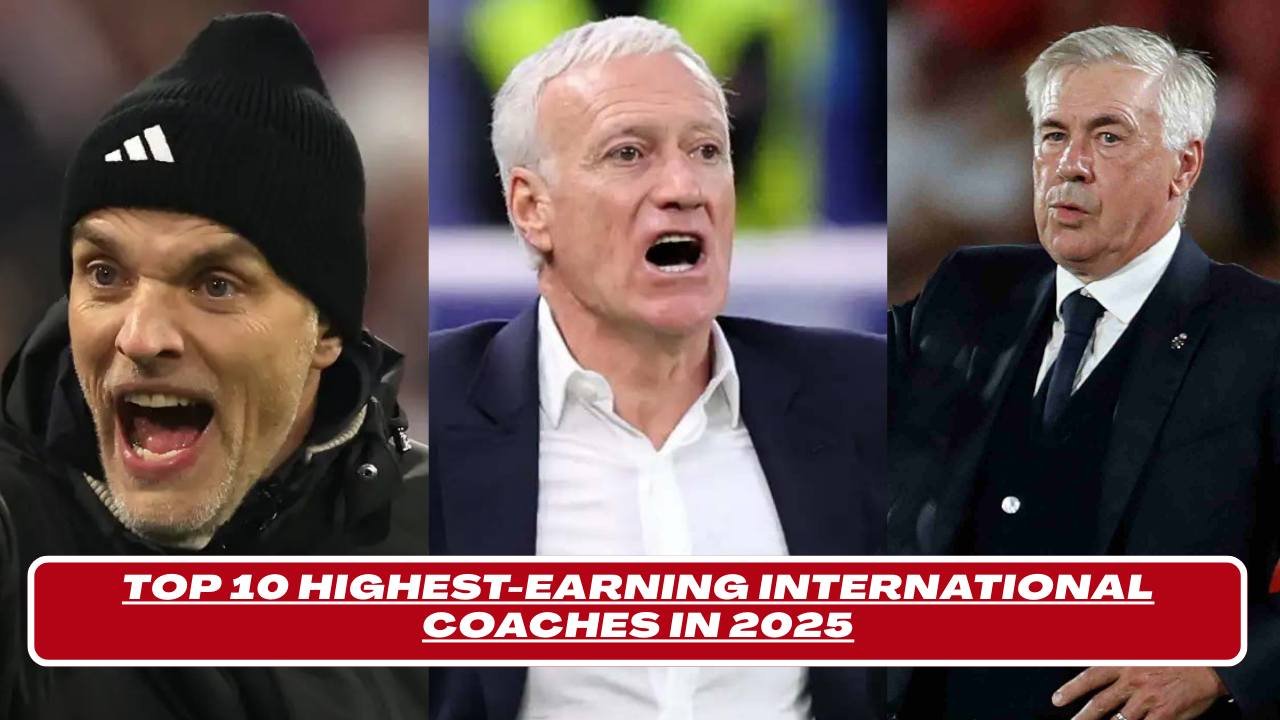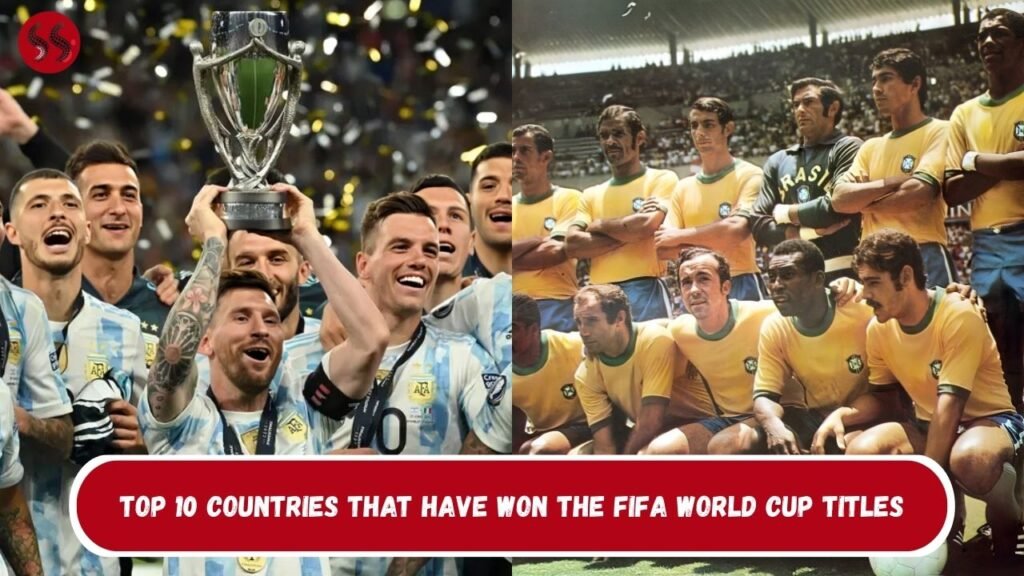Top 10 Highest-Earning International Coaches in 2025 takes you inside the world of football’s most powerful tacticians who are not only shaping the game but also commanding staggering salaries on the global stage. In 2025, international football has become more competitive than ever, and nations are investing heavily in their managers to secure glory at tournaments. From legendary figures with proven track records to rising stars who have quickly made their mark, these coaches are being rewarded with contracts worth millions.
This list uncovers who tops the financial charts, revealing the jaw-dropping paychecks, lucrative bonuses, and hidden perks that make managing at the international level more rewarding than ever. It also explores how these managers justify their salaries—whether it’s by guiding their teams to consistent victories, developing world-class talent, or delivering tactical masterclasses on the biggest stages like the World Cup or continental championships.
If you’ve ever wondered how much the world’s best international coaches earn or which national teams are spending big to stay ahead, this article is your ultimate guide. Discover the managers turning football strategy into fortune and see who leads the rankings in 2025.
10. Fernando Batista – €2.6 Million Per Year
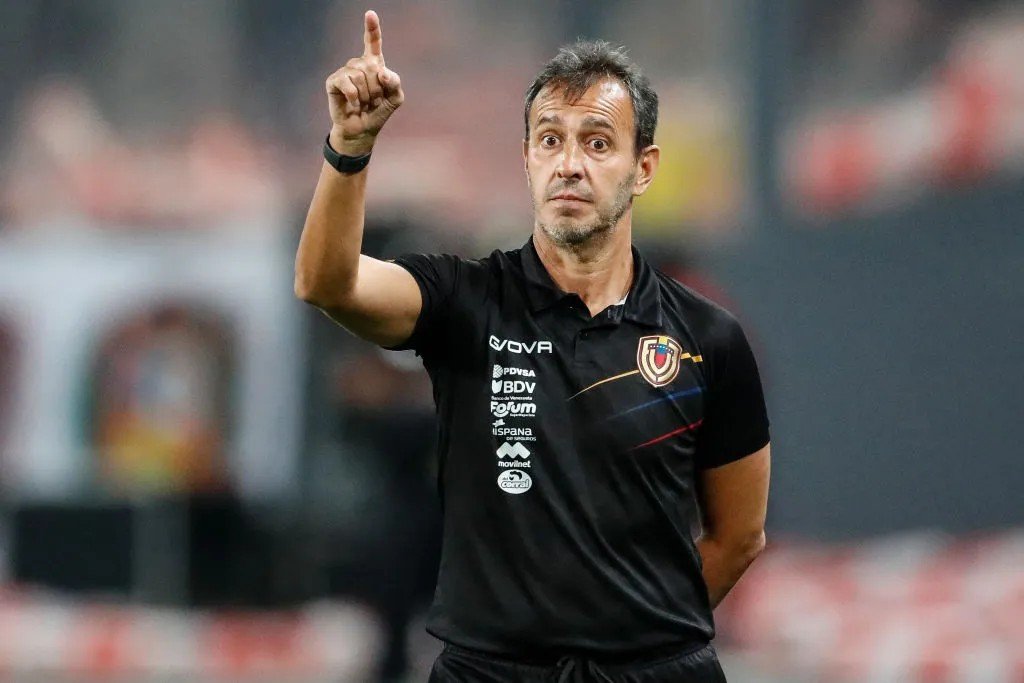
Fernando Batista is currently leading Venezuela, and despite not being as famous as some of the top international coaches, he has made his mark. At €2.6 million per year, Batista surprisingly earns more than Argentina’s Lionel Scaloni and Paraguay’s Gustavo Alfaro, which shows how highly valued he is by the Venezuelan federation. Under his guidance, Venezuela has started to grow into a competitive side, no longer seen as easy opponents. His players have shown better organization and confidence, especially in recent World Cup qualifiers where they won two matches in a row.
Batista’s role is more than just about short-term victories; it’s also about building a footballing identity for Venezuela. His salary represents the country’s investment in long-term development, especially in nurturing new talent and building consistency. Earning a place in the top 10 highest-paid coaches is also proof that smaller nations are no longer afraid to spend big on management. Even though he sits at the bottom of this ranking, Batista’s work with Venezuela has changed how many view the team. If he continues to deliver results, he could push Venezuela into a stronger position for the 2026 World Cup and beyond.
9. Ronald Koeman – €3 Million Per Year
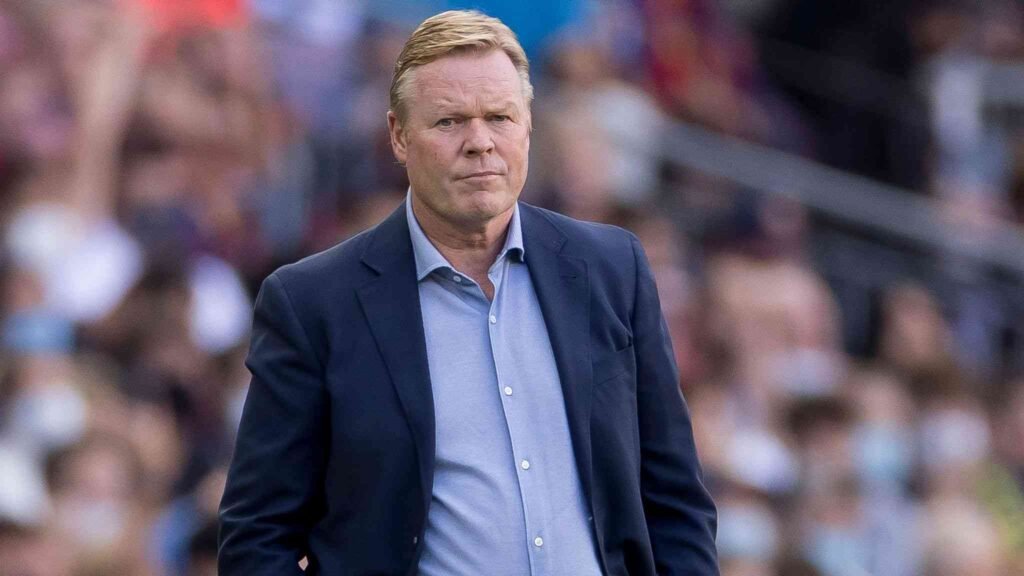
Ronald Koeman returned to manage the Netherlands in 2023, stepping back into the role he previously held before Louis van Gaal. The Dutch federation trusted him again to bring stability and direction as the national side looks toward the 2026 World Cup. Currently earning €3 million annually, Koeman is one of the most experienced names on this list. His ambition is clear—he wants to guide the Netherlands through qualification and stay in charge until the tournament begins.
At 62 years old, Koeman brings a wealth of tactical knowledge and leadership. He has been tasked with blending experienced stars with the exciting younger generation emerging in Dutch football. His salary reflects the importance of his role in helping the Netherlands compete at the top level, especially after their mixed results in recent tournaments. While the team’s journey under him is still in progress, his return provides consistency at a time when Dutch football is trying to reclaim its strong international reputation. Being among the top earners shows that Koeman’s leadership is still highly valued, and he is expected to deliver results that match his salary by guiding the team to another successful World Cup appearance.
8. Ricardo Gareca – €3.3 Million Per Year
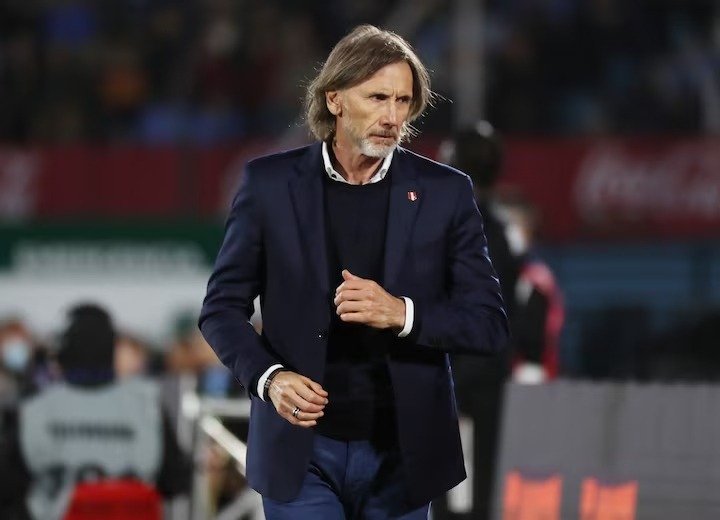
Ricardo Gareca is best remembered for his long spell with Peru from 2015 to 2022, during which he turned them into a highly competitive team. These days, however, he is managing Chile, having taken over in early 2024. With a salary of €3.3 million per year, Gareca is well-paid, but his results so far have been inconsistent. Chile struggled during his first year in charge, most notably failing to advance past the group stage at the 2024 Copa America.
Despite his experience, his current record with Chile is under pressure. Winning only four out of 16 matches has raised questions about whether he can repeat the same magic he had with Peru. However, his salary reflects Chile’s faith in his ability to eventually turn things around and rebuild their squad. Gareca is known for getting the best out of his players, and Chile hopes he can bring that same spirit to their national side. While his current results have not been impressive, his high earnings show that the federation still trusts his long-term project. The coming years will be crucial, as Gareca must justify his pay by guiding Chile back to the competitive levels they once enjoyed.
7. Marcelo Bielsa – €3.5 Million Per Year
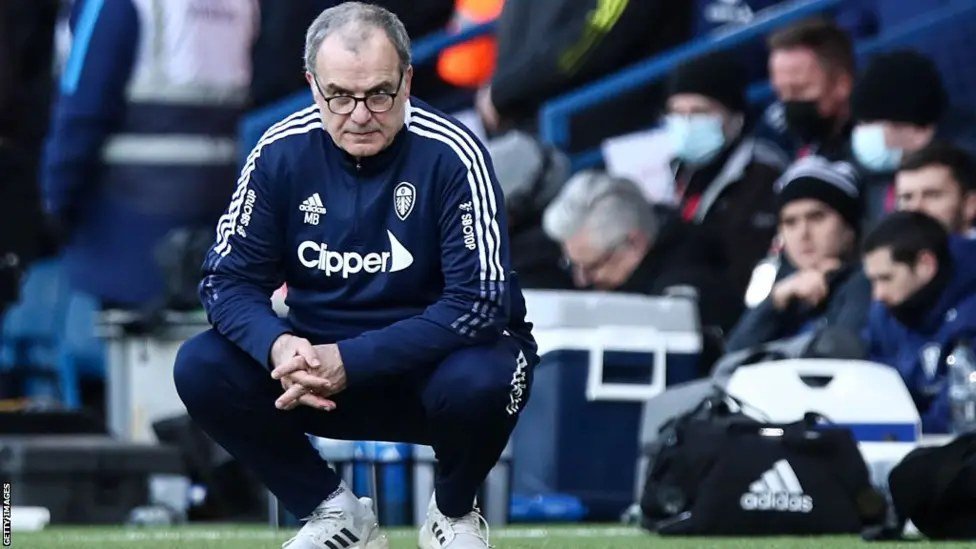
Marcelo Bielsa, known worldwide for his intense style of football, returned to international management with Uruguay after leaving Leeds United in 2022. At €3.5 million per year, Bielsa continues to command high respect and strong earnings. His reputation as a demanding yet visionary coach makes him one of the most fascinating figures in football. Having previously managed Argentina and Chile, Bielsa has plenty of international experience, and Uruguay believes he is the right man to lead them forward.
So far, Bielsa’s time with Uruguay has shown promising signs. He guided them to a third-place finish at the 2024 Copa America, proving he can still make an impact at the highest level. Now his main focus is ensuring Uruguay qualify comfortably for the 2026 World Cup. The team has looked well-drilled, with Bielsa’s trademark pressing and energy visible in their performances. His salary reflects both his global reputation and his ability to improve teams in a relatively short time. While some may see him as a risky appointment due to his demanding methods, Uruguay is confident that his leadership and unique style will push them closer to success. Bielsa’s inclusion on this list is well deserved.
6. Didier Deschamps – €3.8 Million Per Year
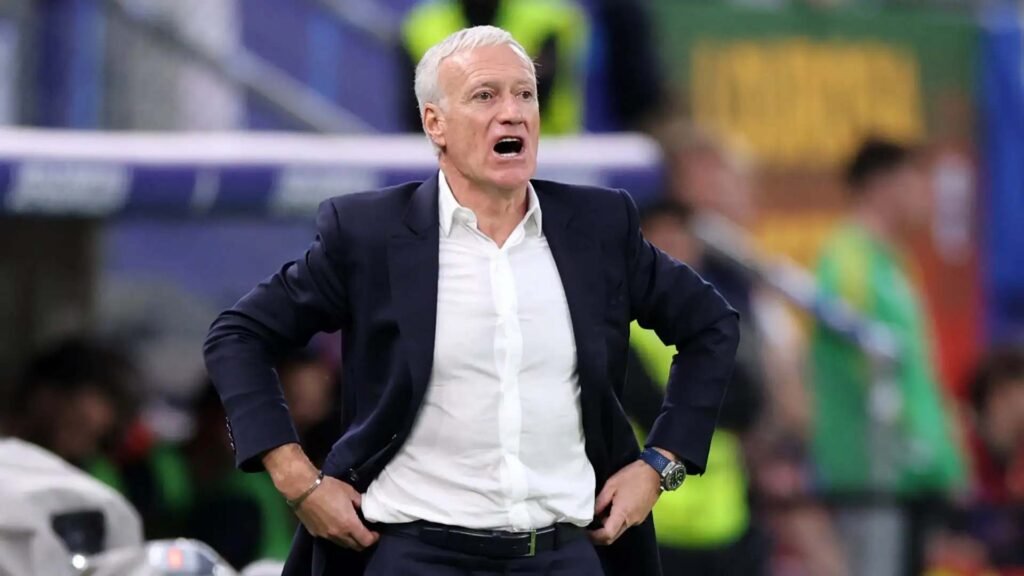
Didier Deschamps has been the manager of France since 2012, making him one of the longest-serving coaches in international football. Earning €3.8 million a year, he has built a reputation as one of the most successful managers of his generation. Under his leadership, France won the 2018 World Cup, lifted the UEFA Nations League, and reached several other finals. His calm but effective style of management has allowed France to remain one of the most dominant teams in the world.
Few managers can match Deschamps’ achievements at international level. His ability to handle star players, manage pressure, and maintain consistent success is exactly why the French Football Federation continues to trust him. His current contract runs until 2026, after which many expect him to step down. Until then, he will aim to guide France to one final triumph, likely at the next World Cup. Deschamps’ salary is not just a reflection of his past glory, but also of his steady leadership and proven ability to keep France competing at the very top. For over a decade, he has turned France into a powerhouse, and his pay clearly reflects that dominance.
Also Read:
- Top 10 Most Creative Footballers in 2025
- Top 10 Players with the Best Vision in 2025
- Top 10 Best International Center-Back Partnerships in 2025
- Top 10 International Defenders of 2025
5. Roberto Martínez – €4 Million Per Year
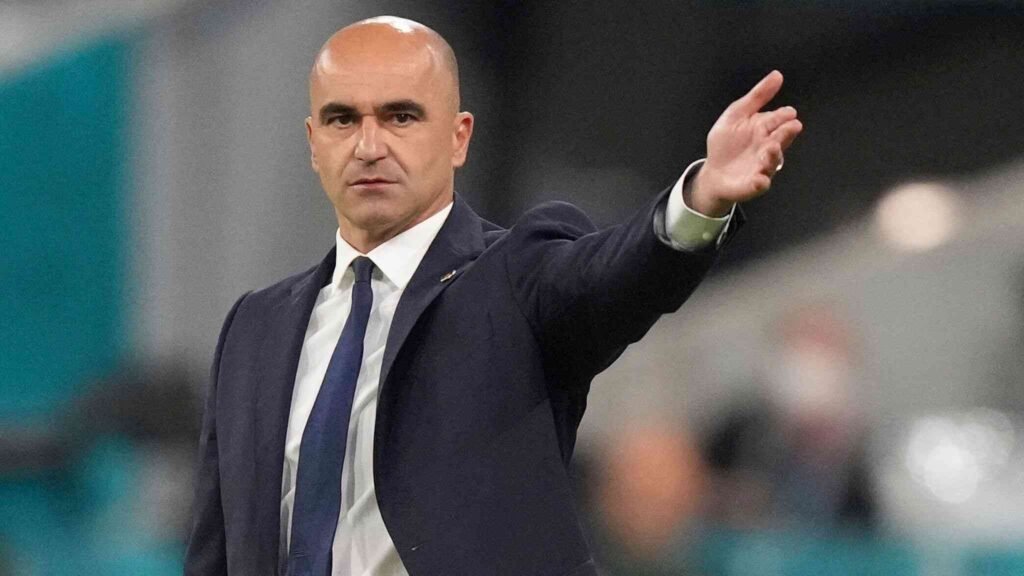
Roberto Martínez, the Spanish manager now in charge of Portugal, earns €4 million annually. After six years coaching Belgium, Martínez moved to Portugal in 2023 and has already achieved strong results with his new team. His record speaks for itself—21 wins in his first 30 games, including victory in the UEFA Nations League final against Spain. His salary reflects the high expectations that come with managing a team full of stars and young talent.
Portugal sees Martínez as the man who can take them to the next level, especially with the 2026 World Cup on the horizon. His ability to blend experienced leaders with rising stars has been a key part of his success. With Cristiano Ronaldo nearing the end of his career, Martínez is tasked with guiding the next generation and ensuring Portugal remains a force in international football. His pay packet shows just how much faith the Portuguese federation has in his vision. For Martínez, this is more than just another job; it’s an opportunity to prove he can turn one of the most talented squads in world football into champions.
4. Julian Nagelsmann – €4.9 Million Per Year

Julian Nagelsmann, at only 37 years old, is the youngest manager on this list, earning €4.9 million annually as head coach of Germany. After leaving Bayern Munich, Nagelsmann was quickly snapped up by the German national team in 2023. His appointment marked the start of a new era, as Germany looked to move past disappointing performances in recent tournaments and rebuild their reputation. His salary highlights just how much the federation believes in his ability to bring fresh ideas and energy.
Germany is currently going through a transition, with a mix of experienced veterans and emerging young talents. Nagelsmann’s challenge is to shape this squad into a team capable of competing for the World Cup. Known for his tactical flexibility and modern approach, he has already introduced changes that could make Germany a serious contender once again. His pay reflects the enormous responsibility placed on his shoulders. For Nagelsmann, the task is clear—restore Germany’s pride on the world stage. If he succeeds, his salary will seem like a bargain for the value he brings. His position proves that even at a young age, he is already seen as one of football’s elite coaches.
3. Mauricio Pochettino – €5.3 Million Per Year
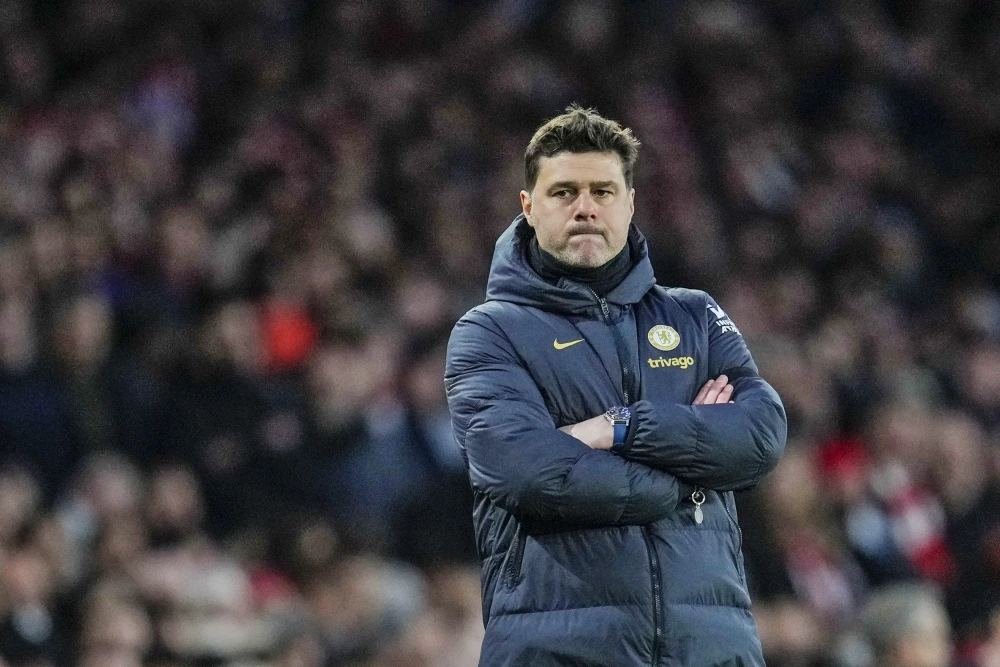
Mauricio Pochettino, the Argentine manager, is now leading the United States national team, where he earns €5.3 million each year. After his sudden exit from Chelsea, he took on this ambitious project in September 2024, signaling his intent to try something completely different. While his start has been mixed, with four defeats in his first nine matches, Pochettino remains confident that he can help the U.S. become serious World Cup challengers. His salary shows the massive belief the U.S. federation has in his ability to guide them forward.
For Pochettino, this is both a challenge and an opportunity. The United States has a growing football culture, and with the World Cup coming to North America in 2026, expectations are high. His goal is not just to win matches but to build belief among players and fans that the U.S. can compete with the world’s best. Despite the early struggles, Pochettino’s passion and experience make him a strong candidate to turn things around. His high salary reflects the scale of this project and the hope that he can lead the U.S. into a new era of success on the global stage.
2. Thomas Tuchel – €5.9 Million Per Year

Thomas Tuchel became the manager of England in early 2025 and earns €5.9 million annually, making him one of the best-paid coaches in the world. In his first three matches, he secured victories, starting his tenure with a perfect record. While fans are excited by this fast start, there is still a sense that England has not yet reached its full potential under him. With his experience in club football, especially in Champions League knockout stages, Tuchel is seen as the man who can finally push England to international glory.
At 51, Tuchel brings with him a reputation for tactical sharpness and the ability to get results against the toughest opponents. England has a talented squad, but turning that talent into trophies has always been their challenge. Tuchel’s salary shows the huge responsibility placed on him—to take the Three Lions from nearly men to champions. As the World Cup approaches, expectations are higher than ever. For England fans, Tuchel represents hope. For the English FA, his €5.9 million yearly wage is an investment they believe could finally pay off with silverware.
1. Carlo Ancelotti – €9.5 Million Per Year
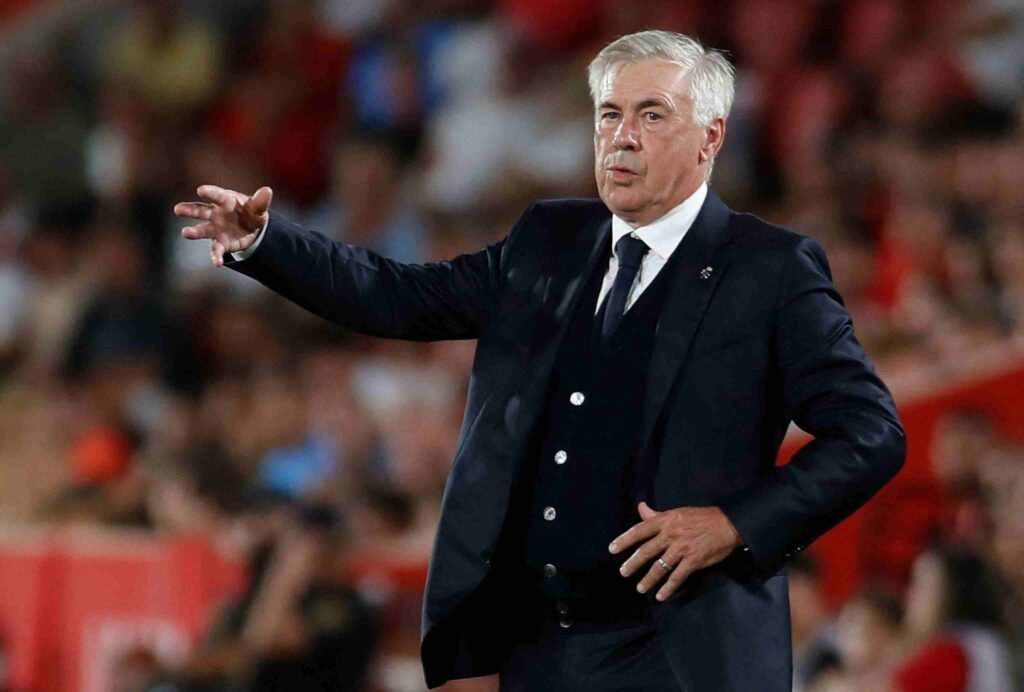
Carlo Ancelotti, one of football’s most respected managers, is now in charge of Brazil and tops this list with a staggering salary of €9.5 million per year. After years of speculation linking him to the role, he officially took over in 2025, just in time to prepare for the next World Cup. His appointment is seen as perfect timing, as Brazil seeks to return to the top of world football after years of frustration. Ancelotti’s arrival has brought excitement and renewed confidence to one of the most successful football nations.
With a career full of trophies at club level, including multiple Champions League titles, Ancelotti’s experience is unmatched. Brazil is counting on him to turn their immense talent into results on the global stage. His salary reflects the enormous faith placed in him, as well as the expectation that he can deliver nothing less than a World Cup victory. For Ancelotti, this role is the pinnacle of an already legendary career. For Brazil, €9.5 million per year is a price worth paying if it means lifting football’s biggest prize again. His appointment shows how serious Brazil is about reclaiming its dominance.
FAQ’s:
Who is the highest-paid international football coach in 2025?
Carlo Ancelotti is the highest-paid international football coach in 2025. The Italian legend recently took over Brazil’s national team and earns around €9.5 million per year. His appointment has generated huge excitement, as Brazil hopes his experience and winning mentality will help them reclaim the World Cup.
Why do international coaches earn such high salaries?
Top international coaches are paid high salaries because of the enormous responsibility they carry. Managing a national team involves guiding the best players of a country, competing in major tournaments like the World Cup, and handling intense media and fan pressure. Football associations are willing to spend big to secure proven managers who can deliver success and elevate their nation’s global football reputation.
Which younger coach is earning the most in 2025?
Julian Nagelsmann, at just 37 years old, is the youngest among the highest earners. He manages Germany and earns €4.9 million per year. Despite his age, Nagelsmann has already built a reputation as one of the most modern and tactically advanced managers in the game, and Germany trusts him to lead their next generation into a new era of success.
